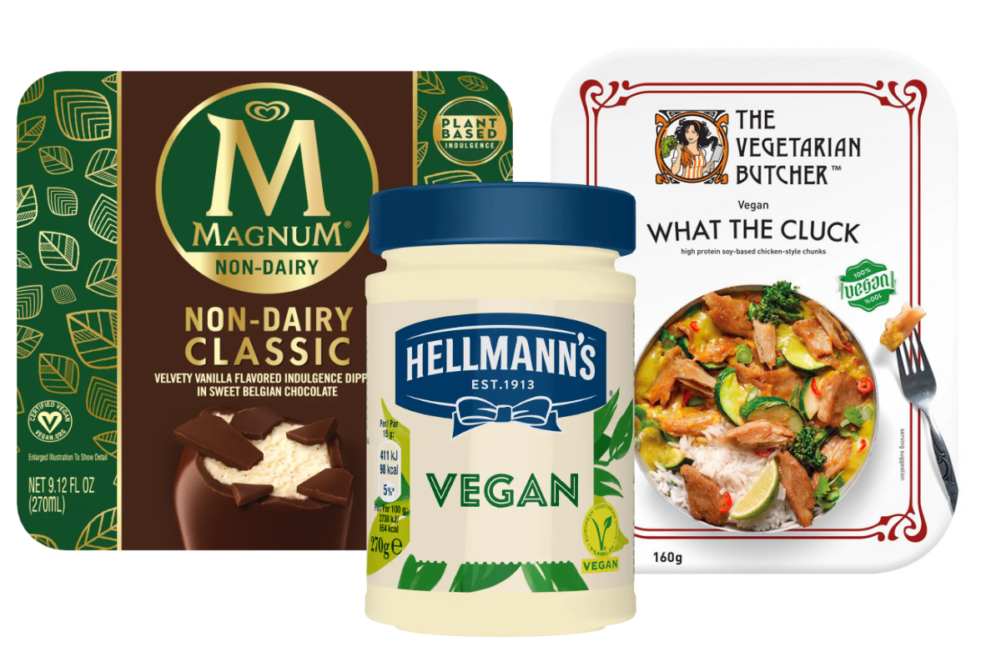LONDON — Plant-based foods is a growing area of opportunity, one in which Unilever holds significant competitive advantage, said Alan Jope, chief executive officer of Unilever. Mr. Jope addressed the Consumer Analysts Group of New York via Zoom on Feb. 16.
While larger in non-food categories than Foods and Refreshment, the latter segment accounts for 38% of Unilever’s annual sales.
Overall, the company “reaches 2.5 billion consumers every day,” Mr. Jope said. Its products are available in 191 countries, and Unilever has operations on the ground in 107, he added. The company generates 60% of its revenue in emerging markets.
“We have a number of clear leadership positions,” he said.
Among the company’s 13 brands with annual sales of €1-billion plus, six are in the food and beverage space, including Hellmann’s, Knorr, Lipton, Sunlight, Magnum and the umbrella “Heartbrand” used to tie together several of the company’s ice cream brands. Knorr is among Unilever brands with global sales exceeding €4 billion annually.
Mr. Jope said Unilever is committed to building on its strengths in plant-based products.
“In foods our plant protein structuring capability is deployed on our core brands like Hellman’s and in meat alternative products to deliver vegetarian and vegan offerings with superior taste and texture,” Mr. Jope said. “This science-based innovation has allowed us to step up our competitive wins product testing so now nearly two thirds of products in our three-year product evaluation program are beating their head-to-head benchmark. From a strong base we have made a decision to invest in a sequential step up in R&D investments over the next three years.”
He cited the company’s new food innovation center in Wageningen, The Netherlands, as an example of that commitment.
During the pandemic, the North America market of Unilever was most strongly advantaged, reflective to other geographies where the company operates, said Graeme Pitkethly, chief financial officer. North America accounts for 19% of sales. Among its product categories in-home food, 29% of sales, ranked second behind hygiene products as the most advantaged during the pandemic. The company’s out-of-home food business (less than 5% of sales) was its most disadvantaged.
“Some markets and categories such as North America and hygiene have been strongly advantaged as restricted living and consumers spending more time at home, increasing consumption of in-home food, being more hygiene focused to stay safe the pandemic,” Mr. Pitkethly said. “North America is our largest geography, but still only 19% of Unilever, which is a lower proportion than for many of our peers.”
While the North America market grew 15% in the categories where Unilever participates, Mr. Pitkethly estimated Unilever growth at 10%.
“So double-digit growth in North America, but behind the market and not as competitive in other geographies,” he said. “More to do.”
Looking forward, Mr. Pitkethly said food consumption will gradually shift back toward away-from-home dining, which he said would benefit the company’s food solutions and ice cream businesses.






